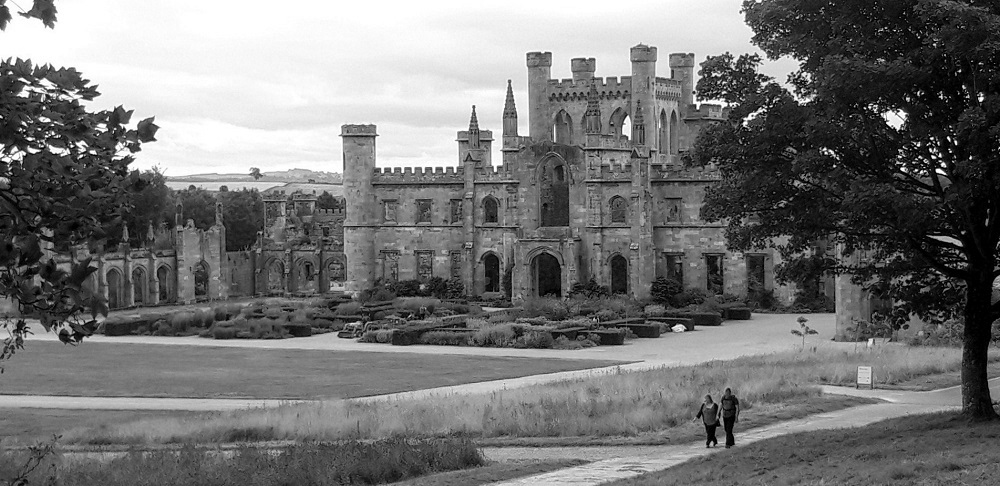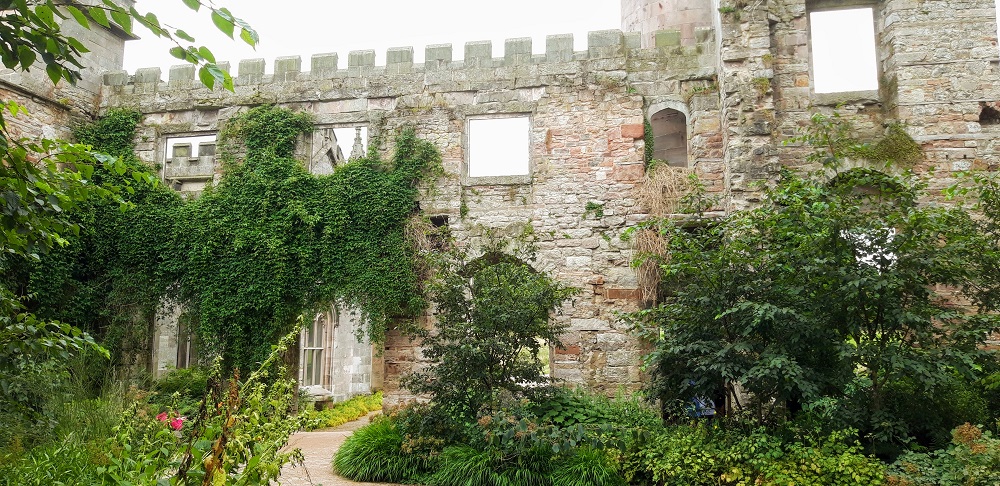The ruined shell and lost gardens of Lowther Castle are a stark reminder of what happens when a business loses sight of the finances.
1806 – 1814
The current building was built by Robert Smirke for William Lowther, 1st Earl of Lonsdale, between 1806 and 1814. However, the estate had been home for the Lowther family since the Middle Ages.
1882 – 1935
The family’s vast fortune was undermined by the extravagance of Hugh Cecil Lowther, the 5th Earl of Lonsdale. Hugh was ill-equipped to handle his unexpected inheritance at the age of 25 in 1882, and was forced eventually to sell off some of his properties. Known as the “Yellow Earl” because he liked to display the colour of the Lowther coat of arms wherever he went, he was the last resident of the castle, leaving in 1935 because he could no longer afford to live there.

1937 – 1947
Lowther castle was closed in 1937. During the Second World War it was used by a tank regiment, and the grounds and buildings suffered. Hugh’s brother Lancelot, the 6th Earl, inherited the estate in 1944 and was forced to sell many of the family’s treasures to pay off Hugh’s debts. A large auction sale was held in 1947.
1953 – 2006
Lancelot died in 1953 and was succeeded by James, his grandson. The family could not afford to use or maintain the building, nor could they give it away to the National Trust and other institutions. They stripped the castle and removed the roof to avoid taxes. The forecourt was used for pig pens and a broiler chicken factory was built on the south lawns.
2011 – Present
Significant improvements were made after James died in 2006. Funding from various sources enabled some restoration of the castle shell, stables, and gardens. The site opened for public visits in 2011 and was cited as the Large Visitor Attraction of the Year 2018 in the Cumbria Tourism Awards.

The importance of sound financial management
The story of Lowther Castle illustrates the importance of sound financial management. A fortune that took years to build was lost virtually overnight because the business owner threw caution to the wind; he ignored the books, took his income for granted and failed to curb his unnecessary expenditure.
Don’t be like the Yellow Earl. Your business can’t afford financial mismanagement. Hiring an accounting professional for your bookkeeping, cash flow management, and tax affairs, is one of the best investments you’ll ever make.
Need a little help?
My Accounting Emails are for business owners who want a better understanding of their financial position. They’ll help you manage your cash flow and stay in the black.
GET MY EMAILS
Need more help?
Contact me today and we’ll talk about the help you need.
CONTACT ME
“As a small business it is important to always have financial clarity and often it is difficult to try and do this yourself. Paul has worked with us for several years and has streamlined and organised all of our accounting systems. He provides us with a complete accountancy service and is very professional in his approach as well as being a likeable guy.” - D. Walsh, Director. DualTEC Services Limited, Keighley. (Google review)
“Paul has done a great job putting my accounts on to Sage Business Cloud, and also got a discount for me. I like that the software is MTD compatible and I can access it from anywhere. Paul sorts out all my invoices, does my bookkeeping and produces reports every quarter (or whenever I need them). He is friendly, reliable and easy to work with - it's good to have him on board." - C. Milne, Proprietor. CAM Properties, Carnforth. (Google review)
